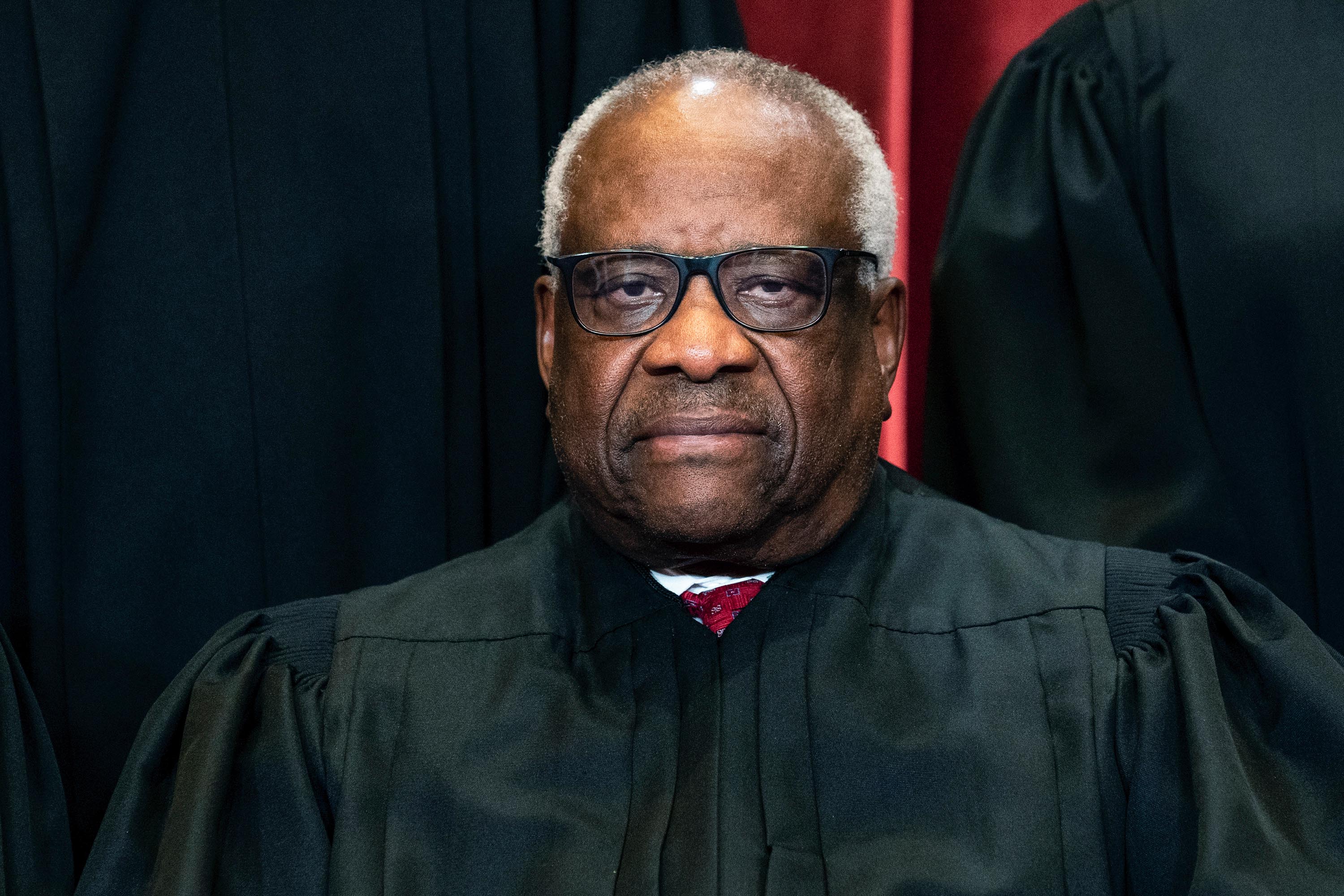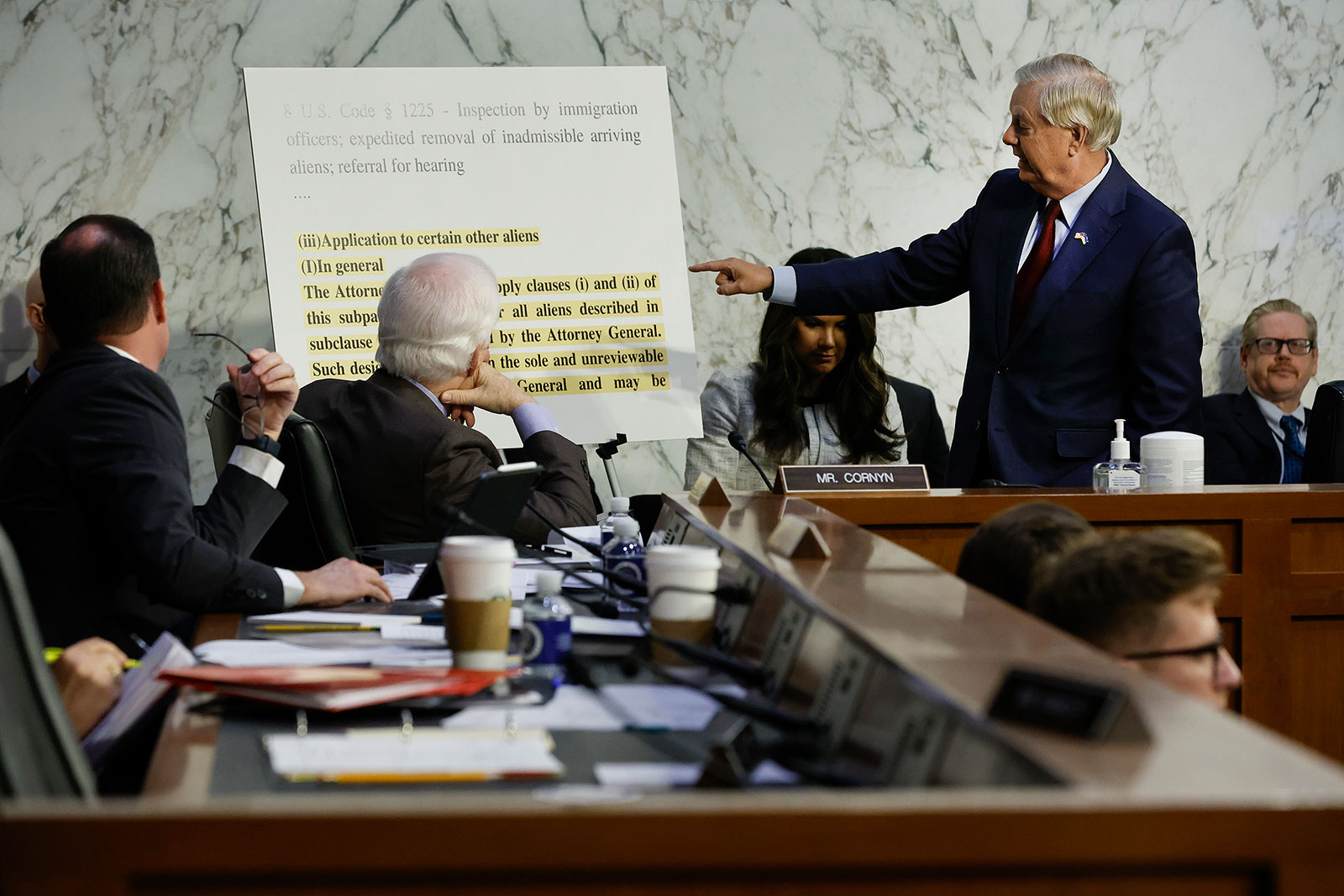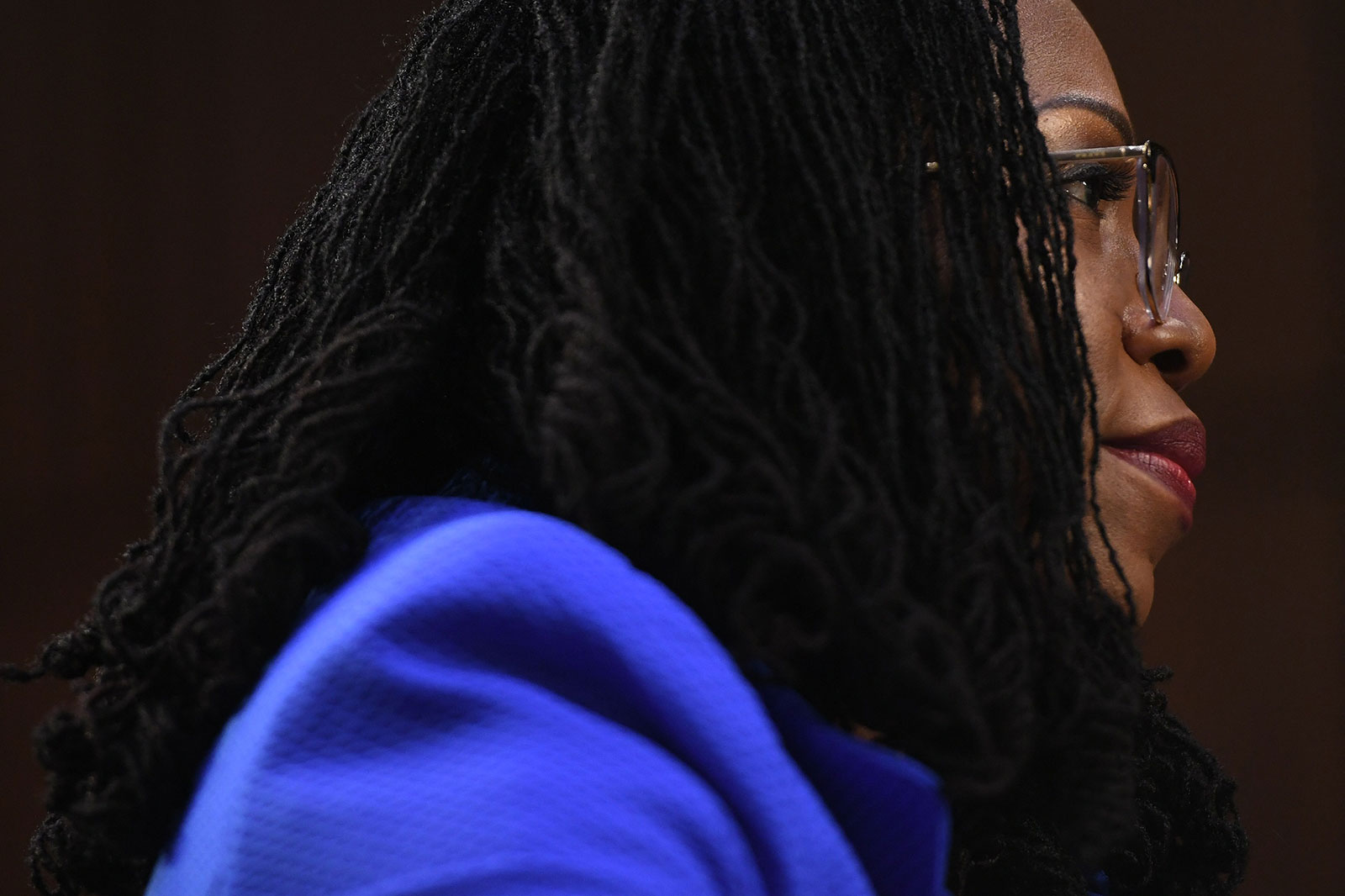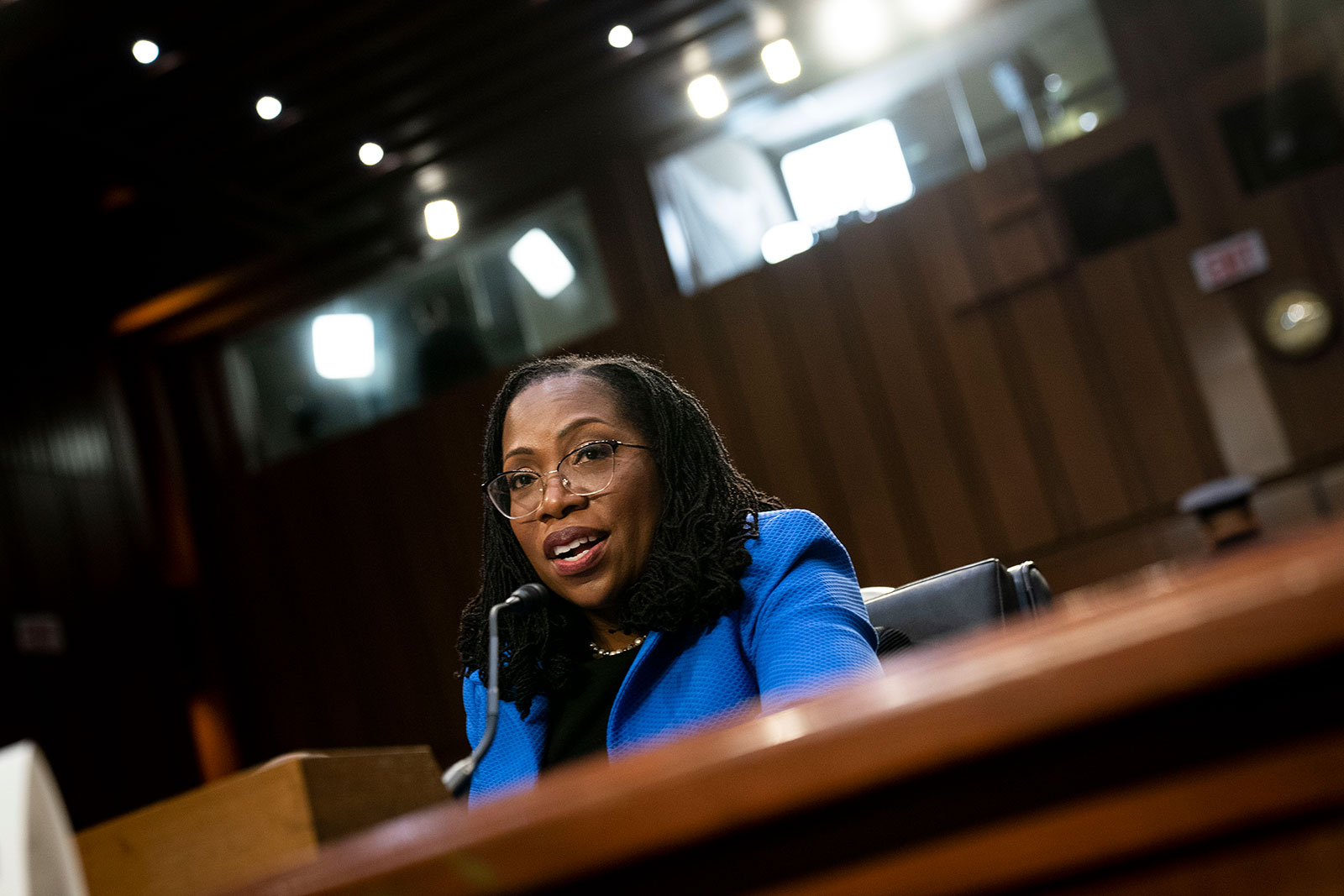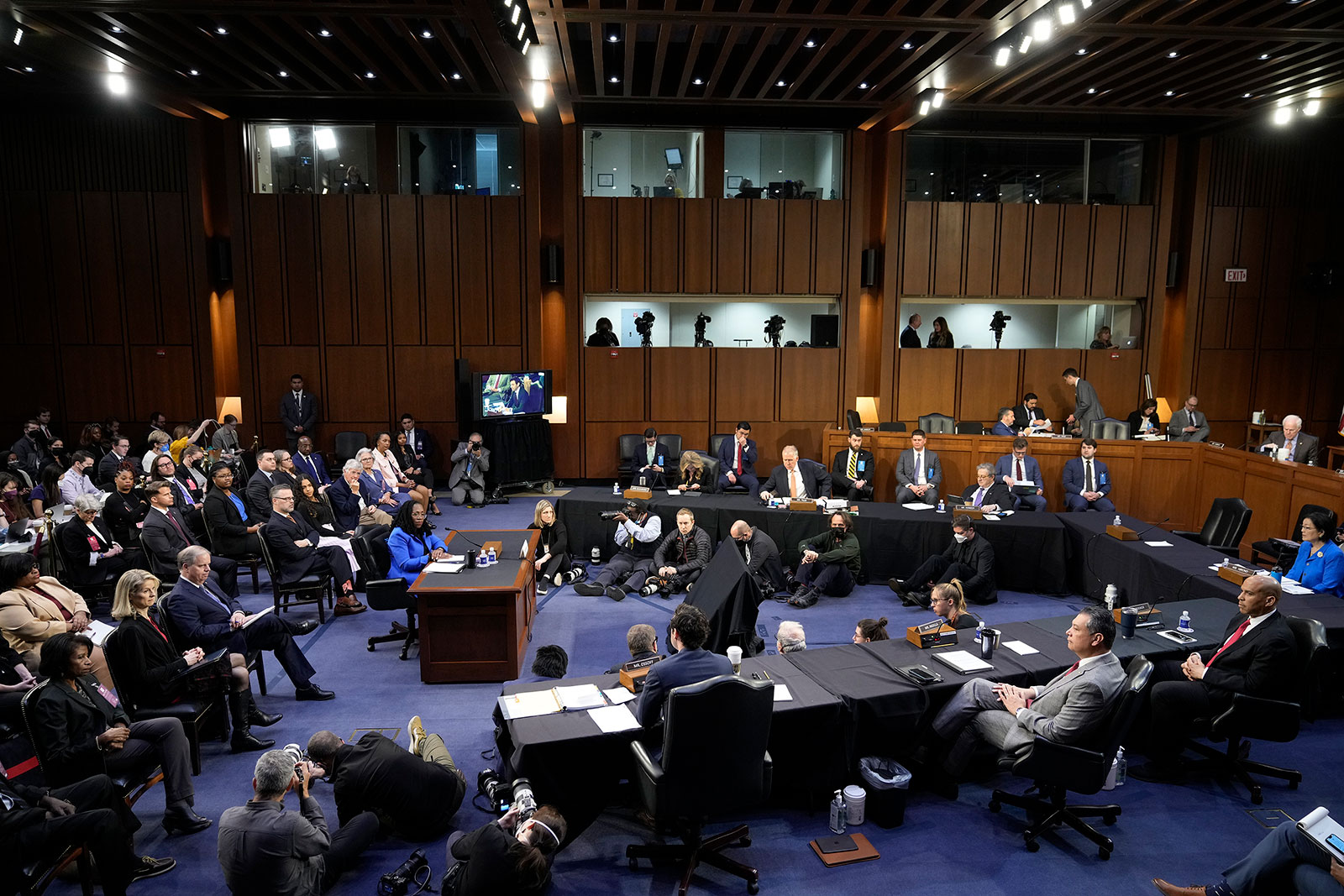
The temperature of the confirmation hearings was raised significantly with a series of questions by Sen. Lindsey Graham that culminated in him repeatedly interrupting Judge Ketanji Brown Jackson attempts to explain her legal approach.
Jackson's comments laying out why she viewed as outdated certain aspects sentence guidelines for child porn cases prompted in a particularly heated interjection by Graham, a Republican from South Carolina.
“On the internet, with one click, you can receive, you can distribute tens of thousands. You can be doing this for 15 minutes, and all of a sudden, you are looking at 30, 40, 50 years in prison,” Jackson said.
“Good, good!” Graham jumped into exclaim, as she tried to continue to explain why many judges view that approach as problematic.
“I hope you go to jail for 50 years. If you're on the internet trolling for images of children and sexual exploitation. So — so you don’t think that’s a bad thing, I think that’s a horrible thing,” Graham said, before Chairman Dick Durbin stepped in.
“That’s not what the witness said and she should be allowed to answer this question once and for all, senator,” Durbin said.
Graham stormed out of the hearing room at the end of back-and-forth, and declined to comment to CNN about the testy back-and-forth.
Sen. Patrick Leahy, a Vermont Democrat and a fellow committee member, told reporters Graham’s questioning of her was “beyond the pale.”
“I've been on this committee nearly 50 years. One of the things that senators on both sides of the aisle tend to at least try to follow the rules,” Leahy said. “Lindsey Graham has gone twice the amount of time that was allotted to him. He wouldn't let her answer, he kept interrupting her, and I couldn't help but think, 'Was this aimed for this hearing or aimed for a political campaign.'”
Even before Graham turned his questioning to the touch subject of child abuse imagery offense, Democrats were bristling at his refusal to let Jackson finish answers.
During a discussion of her trial court ruling – later overturned by DC’s appellate court — in a case dealing with a Trump administration immigration policy, Graham accused her of judicial activism.
“This is an example to me, and you may not agree, where the plain language of the statute was completely wiped out by you,” Graham said. When Jackson tried to explain her rationale in that decision, Graham interrupted her repeatedly, telling her legal argument in the case “fell on deaf ears” and that “I've got other things I want to talk about.”
Those other things included Justice Brett Kavanaugh’s confirmation proceedings, which Republicans have raised on several occasions during Jackson’s hearing to complain about how Democrats treated him
Jackson wasn’t following a Graham hypothetical that referred to how accusations against Kavanaugh came out then. Even as Durbin pointed out his time had expired and that she had nothing to do with those proceedings, Graham charged through the question, asking Jackson how she would feel if what happened to Kavanaugh happened to her.
"I’m asking her about she may feel about what y’all did!” Graham huffed at Durbin.
Jackson said she had no comment on the Kavanaugh proceedings, but wanted to answer earlier Graham questions about her child porn sentencing record, leading to the exchange about her view of the guidelines.
“I think the best way you deter crime when it comes to child pornography is you lower the boom on anybody who goes onto the internet and pulls out these images for their pleasure,” Graham told Jackson, who argued that, in addition to imprisonment, she ordered lengthy supervision and limits on computer use.
“And all I can say is that your view of how to deter child pornography is not my view. I think you're doing it wrong and every judge who does what you're doing is making it easier for the children to be exploited,” Graham said.








